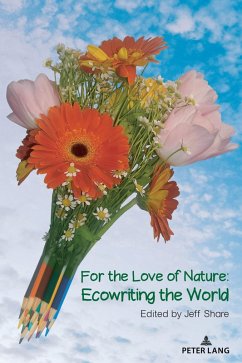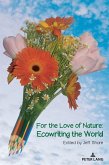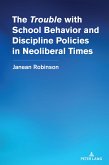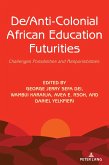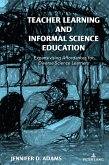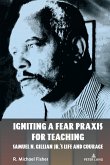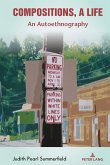For the Love of Nature: Ecowriting the World brings together a series of essays that address the power and magic of writing about the natural world. The array of authors and locations, from Melbourne to Los Angeles to Rome, share their expertise in literacy and their passion for nature. They offer ideas and examples of ecowriting through various media and genres including videos, journals, letters, comic strips, poetry, and more. Their reflections on writing demonstrate a love of nature and concern for education that promotes social and environmental justice for students of all ages. The essays offer numerous examples for interacting with the environment. For the Love of Nature includes many entry points for ecowriting, from theoretical explanations to practical, step-by-step applications. The essays, student examples, lesson plans, and lists of resources provide everything a teacher needs to engage their students in reflecting on, participating with, and writing about the natural world.
This engaging collection posits the value of and need for instruction on ecowriting that fosters students' relationships with the natural world and an appreciation of Indigenous/Non-Western ecological perspectives. The book includes useful essays on teaching various types and genres of ecowriting, including the use of digital media productions such as video and multimodal essays. It also includes examples of students' essays, letters, and poems from Jeff Share's environmental justice class that illustrate the instructional methods described in the book. Therefore, this book is a useful resource for teachers to incorporate ecowriting into their teaching to engage students in creatively portraying their experiences with the natural world for having them address the need for action about the global climate crisis.
Richard Beach, Professor Emeritus of English Education,
University of Minnesota
Drawing upon Indigenous wisdom and critical pedagogy, For the Love of Nature: Ecowriting the World is both a call to action and an important resource for teaching, learning, and enacting environmental justice. The beautiful collection of essays is a must-read for all K-12 educators interested in advancing educational and climate justice to create a more sustainable and caring world for our present and our future.
Annamarie M. Francois, Ed.D. Executive Director Center X, UCLA
This engaging collection posits the value of and need for instruction on ecowriting that fosters students' relationships with the natural world and an appreciation of Indigenous/Non-Western ecological perspectives. The book includes useful essays on teaching various types and genres of ecowriting, including the use of digital media productions such as video and multimodal essays. It also includes examples of students' essays, letters, and poems from Jeff Share's environmental justice class that illustrate the instructional methods described in the book. Therefore, this book is a useful resource for teachers to incorporate ecowriting into their teaching to engage students in creatively portraying their experiences with the natural world for having them address the need for action about the global climate crisis.
Richard Beach, Professor Emeritus of English Education,
University of Minnesota
Drawing upon Indigenous wisdom and critical pedagogy, For the Love of Nature: Ecowriting the World is both a call to action and an important resource for teaching, learning, and enacting environmental justice. The beautiful collection of essays is a must-read for all K-12 educators interested in advancing educational and climate justice to create a more sustainable and caring world for our present and our future.
Annamarie M. Francois, Ed.D. Executive Director Center X, UCLA
Dieser Download kann aus rechtlichen Gründen nur mit Rechnungsadresse in A, D ausgeliefert werden.
This engaging collection posits the value of and need for instruction on ecowriting that fosters students' relationships with the natural world and an appreciation of Indigenous/Non-Western ecological perspectives. The book includes useful essays on teaching various types and genres of ecowriting, including the use of digital media productions such as video and multimodal essays. It also includes examples of students' essays, letters, and poems from Jeff Share's environmental justice class that illustrate the instructional methods described in the book. Therefore, this book is a useful resource for teachers to incorporate ecowriting into their teaching to engage students in creatively portraying their experiences with the natural world for having them address the need for action about the global climate crisis. Richard Beach Professor Emeritus of English Education, University of Minnesota

